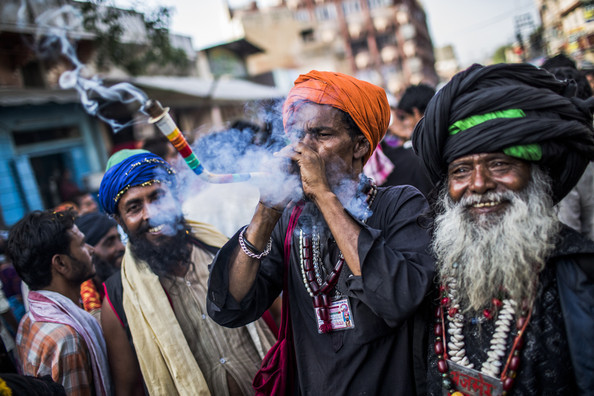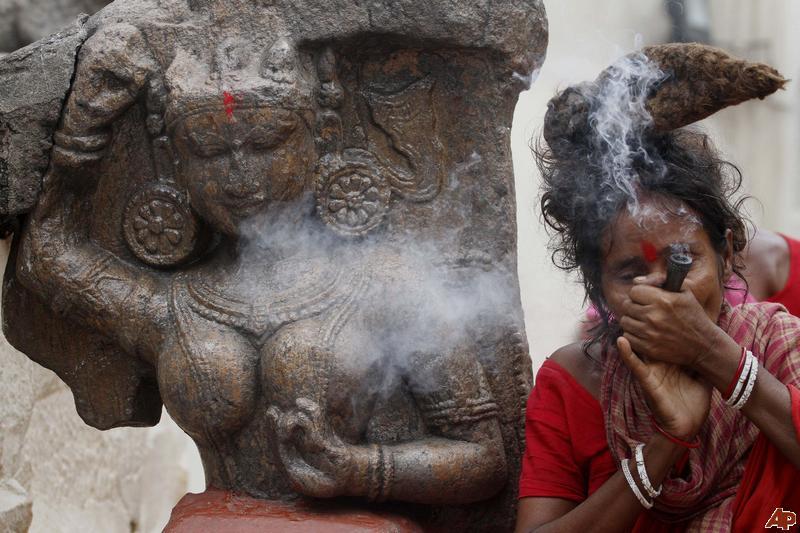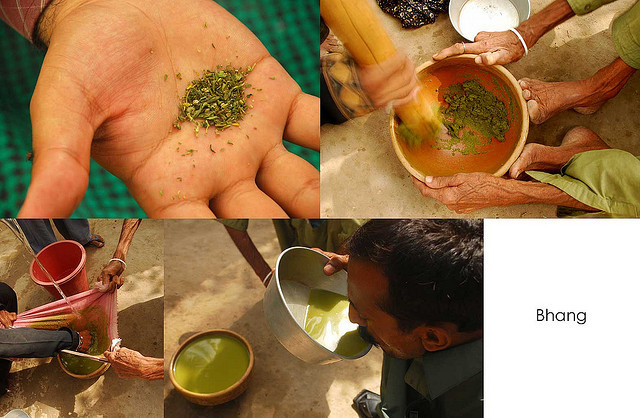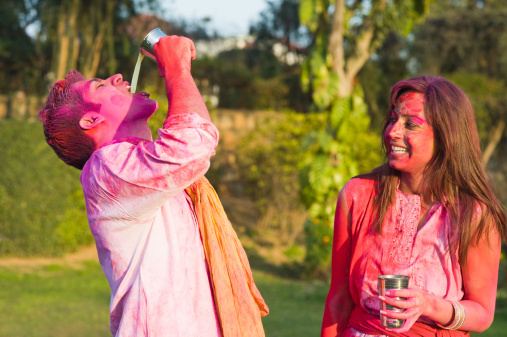A private-prisons-backed, corporatist-police state-driven, racially-skewed "new Jim Crow" era of mass incarceration currently reigns in the U.S. The key factor in its growth has been enforcement of drug control laws. This archipelago of jails, prisons, and holding centers concretely represents the continuation of a long-standing, colonialist-racist policy, which has grown in its reach as underground trade in contraband psychoactive substances has spread from the margins of historic empires to their centers. It has matured as frankly racist-colonialist attitudes have become veiled in pseudo-medico-scientific moralistic legitimacy, now inculcated into schoolchildren and their parents as "drug hate."
Why this matters for South Asians is that 1) significant threads of modern drug war's roots in colonialism and racism can be traced back to animosity and discrimination directed at South Asian people, immigrant diasporas, and long-standing cultural practices (e.g., see Jamaican and Indian histories here and here); 2) modern mass incarceration intersects with the rise of undocumented immigrant holding centers that target South Asians and other immigrant groups; 3) liberating people to make use of suppressed plants by adopting a decriminalized model of real public health regulation for all psychoactive substances which recognizes people's rights to cultivate natural plants could foster global health and development. Examples include correcting extreme global shortages of opium-derived pain medicines and availing the thousands of uses of the cannabis hemp plant for food, shelter, medicine, fuel, paper and other valuable products. The drug wars have hamstrung scientific and medical progress, disallowed affordable, locally produced, plant-based relief from pain and suffering, propagated epidemic diseases, and perpetuated brutal violence against masses caught in the crossfire of cartels and gangs.
Being post-colonial and casteism-aware, progressive South Asians can appreciate the subtle ways that domination can be achieved through the seemingly arbitrary categorization of customs and practices as impure or pure, and through the association of certain states of being and behaviors as underclass and upperclass. Based on racist colonialist ideology, whole practices can become interpreted as foreign, exotic, bizarre, or mad, based on the idea that the dignity of a "pukka-sahib," an English gentleman, is greater than the inherent dignity of an Indian laborer, a "coolie." It was under such prevailing ideological conditions that a subset of South Asian and "Oriental" cultural consumption practices over the last 100 years came unjustly to be seen as inherently less dignified, and the now-global state-cartel policy of systematically excluding certain botanicals from everyday common use and practice by threatening criminal penalty was born and fostered.
Chief among these banned plants, which include coca and opium, is cannabis, which may be the most widely domesticated plant in the world. Evolving 36 million years ago in South/West Asia, cannabis is sacredly figured into numerous South Asian cultural-spiritual-religious traditions and has various names: Bhang, Vijaya, Soolphia, Ganja, Charas, Indian Hemp, Cannabis Indica, Cannabis, Marijuana.
A significant portion cannabis' spread around the world can be traced back to westward waves of low-caste migrants from South Asia in the 19th and early 20th centuries bringing with them the practice of cannabis use, whereupon they were met with scorn.
"Within the last year we in California have been getting a large influx of Hindoos and they have in turn started quite a demand for cannabis indica; they are a very undesirable lot and the habit is growing in California very fast; the fear is now that it is not being confined to the Hindoos alone but that they are initiating our whites into this habit." -- Henry J. Finger, leader of California Board of Pharmacy, Letter to Hamilton Wright, leader of US delegation to International Opium Conferences, 7/2/1911
In a U.S.-led colonial effort, India and other South Asian countries were ordered by the UN, despite official protest, to give up their long-standing cultural practice of cannabis consumption in 1961, and given a 25-year grace period to do so, which India only partially did. When UN meetings were held in NYC to internationally prohibit cannabis, save for an elite monopoly, and categorize it as a substance which ought to be removed entirely because of its "risk to public health," the delegate representing the Indian government stated that "India would not be able... to enforce prohibitions on the use of those substances [ganja and bhang], particularly in remote localities where, as inexpensive sedatives, they were used for medical and quasi-medical purposes." Delegates from Ghana, Pakistan, France, the United Kingdom, Germany, Uruguay, and Burma verbally supported the Indian concerns and mostly wished to see cannabis treated like opium, for indigenous and traditional uses to be tolerated, and for future medical applications to not be foreclosed.
Today, a South Asian leader of human rights, attorney Anand Grover, is championing the cause of recognizing the traditional use of cannabis and doing away with criminalization in matters related to drugs at the UN. The UN Human Rights Council appointed Grover as the Special Rapporteur on the right of everyone to the enjoyment of the highest attainable standard of physical and mental health at its eighth session held in June 2008. I invite you to read his 2010 report on the right to health and international drug control and his 2012 report regarding the relationship between current drug policies and torture. His call for global respect for the enduring cultural legacy of cannabis use in India begs the question: would such a treaty agreement dictating mandatory "stamping out" of culturally accepted close contact with a plant even be politically possible today? Movement is afoot in India today to reclaim their cultural right to cannabis, as seen in recent media in the wake of U.S. marijuana law changes (see articles here, here and this documentary's release).
In the U.S., cannabis, freighted as it is with symbolic politics of general rebellion against pre-1960s American social norms, is at the heart of the drug war, a failed trillion-dollar policy since its official declaration 42 years ago. Suppression of cannabis is historically tied to racism and colonialism, a significant proportion of which was directed against South Asians. This must be understood and challenged at its roots.



